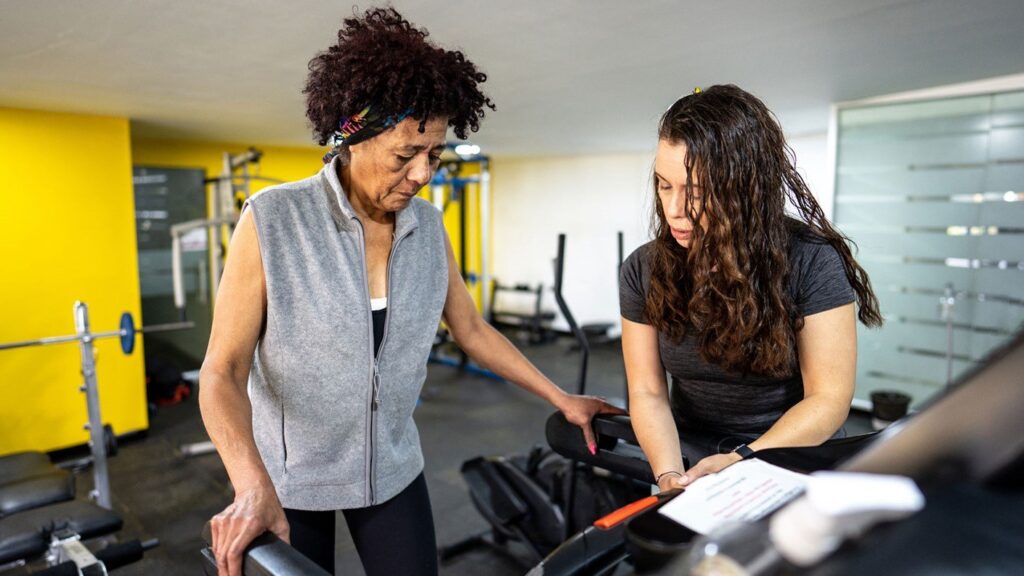For the first time, robust scientific evidence has shown that following a structured exercise programme can reduce the risk of death by up to one-third in people with cancer.
In addition to improving overall survival, regular, tailored physical activity has been found to significantly decrease the likelihood of cancer recurrence and the development of new tumours, highlighting its vital role in long-term cancer care and prevention.
The results of the international trial have shown that structured exercise is more effective than many pharmaceutical interventions in improving likelihood of survival and reducing cancer reoccurrence rates.
The trial found that patients who started a structured exercise programme, supported by a personal trainer or coach after completing their treatment, had a 37% lower risk of death and were 28% less likely to experience a recurrence or develop a new cancer compared to those who received only general health advice.
These findings not only strengthen the case for prescribing exercise as part of cancer care, but they also show how the physical activity workforce is an essential partner in delivering this intervention safely and effectively at scale.
Specially skilled physical activity practitioners are already playing a vital role in supporting people with health conditions, including cancer, often in community settings where accessibility and familiarity make all the difference.
This expert workforce is uniquely trained to deliver safe, tailored activity programmes that support both physical recovery and emotional wellbeing. However, exercise is still not routinely prescribed after cancer treatment, partly due to a lack of formal structures that link healthcare to qualified professionals in the sector.
One successful model already demonstrating the power of this collaboration is Prehab4Cancer, delivered by CIMSPA partner GM Active in partnership with the NHS in Greater Manchester. This programme provides physical activity, nutrition and wellbeing support to people preparing for and recovering from cancer surgery, all delivered by trained professionals in local leisure and community settings.
Since its launch, Prehab4Cancer has helped thousands of patients build resilience before surgery and recover faster after treatment, with measurable improvements in physical function, mental health and hospital outcomes. It’s a powerful example of what becomes possible when health services work hand in hand with the physical activity workforce.
To replicate this kind of success nationwide, the workforce delivering it must be recognised and understood across the healthcare system. That’s why the introduction of professional status for sport and physical activity practitioners is such an important milestone.
This status offers a formal assurance of qualifications, competence and accountability, giving GPs, oncologists and other healthcare professionals the confidence to refer patients to activity-based services.
Tara Dillon, CEO of the Chartered Institute for the Management of Sport and Physical Activity (CIMSPA), said:
“This is a breakthrough moment for our sector. The evidence from this international trial confirms what many of us have long believed: that exercise is a powerful, evidence-based intervention in serious health conditions like cancer. But for this to be widely adopted in healthcare settings, we must ensure those delivering it are recognised as professionals in their own right.
Introducing professional status gives healthcare providers the confidence that they’re referring patients to competent, qualified and accountable practitioners. It also opens the door for members of our workforce to specialise in clinical areas, such as long-term condition management, supported by clear standards and structured development pathways.
We’re not just talking about improving patient outcomes, though that’s absolutely at the heart of it. We’re also talking about a major opportunity to elevate the profession, create meaningful career routes and equip our workforce to take on these vital roles in supporting preventative and rehabilitative healthcare.”
With formal recognition and growing demand, there is now a clear opportunity for people working in the sector to pursue specialist roles and qualifications. These roles not only improve lives, but they expand the scope and value of a career in sport and physical activity.
CIMSPA, together with education partners and employers, is investing in building clear professional pathways, standards and continuing professional development for practitioners working in clinical and health-integrated settings.
Tara said:
“Incorporating structured exercise into cancer care is no longer a question of “if”, but “how quickly”. The answer lies in scaling proven models like Prehab4Cancer and ensuring a strong, professional workforce is in place to deliver them.
For patients, this means earlier, easier access to personalised support. For the NHS, it means reduced pressure on services, faster recovery times and better outcomes. And for the workforce, it means a transformative opportunity to grow into recognised healthcare-adjacent roles that make a tangible difference every day.
The international trial findings offer compelling evidence, but real change requires systems and people to bring them to life. The sport and physical activity workforce is ready to step into this expanded role, and with professional status about to be a reality, they are better equipped than ever.
By embedding these professionals into care pathways, scaling successful initiatives and investing in specialist training, we can make physical activity a core part of cancer recovery across the UK, improving lives, supporting the NHS and elevating our talented and dedicated sector professionals in the process.”


